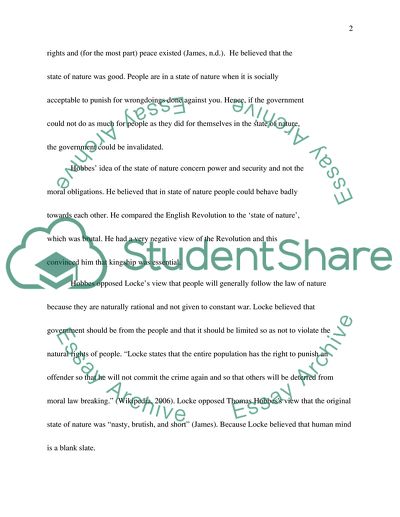Cite this document
(“Analyse & assess how hobbes & locke's views differ on the state of Essay”, n.d.)
Analyse & assess how hobbes & locke's views differ on the state of Essay. Retrieved from https://studentshare.org/miscellaneous/1536948-analyse-assess-how-hobbes-lockes-views-differ-on-the-state-of-nature-the-social-contract-and-the-system-of-government-to-what-extent-was-each-philosophe
Analyse & assess how hobbes & locke's views differ on the state of Essay. Retrieved from https://studentshare.org/miscellaneous/1536948-analyse-assess-how-hobbes-lockes-views-differ-on-the-state-of-nature-the-social-contract-and-the-system-of-government-to-what-extent-was-each-philosophe
(Analyse & Assess How Hobbes & locke'S Views Differ on the State of Essay)
Analyse & Assess How Hobbes & locke'S Views Differ on the State of Essay. https://studentshare.org/miscellaneous/1536948-analyse-assess-how-hobbes-lockes-views-differ-on-the-state-of-nature-the-social-contract-and-the-system-of-government-to-what-extent-was-each-philosophe.
Analyse & Assess How Hobbes & locke'S Views Differ on the State of Essay. https://studentshare.org/miscellaneous/1536948-analyse-assess-how-hobbes-lockes-views-differ-on-the-state-of-nature-the-social-contract-and-the-system-of-government-to-what-extent-was-each-philosophe.
“Analyse & Assess How Hobbes & locke'S Views Differ on the State of Essay”, n.d. https://studentshare.org/miscellaneous/1536948-analyse-assess-how-hobbes-lockes-views-differ-on-the-state-of-nature-the-social-contract-and-the-system-of-government-to-what-extent-was-each-philosophe.


